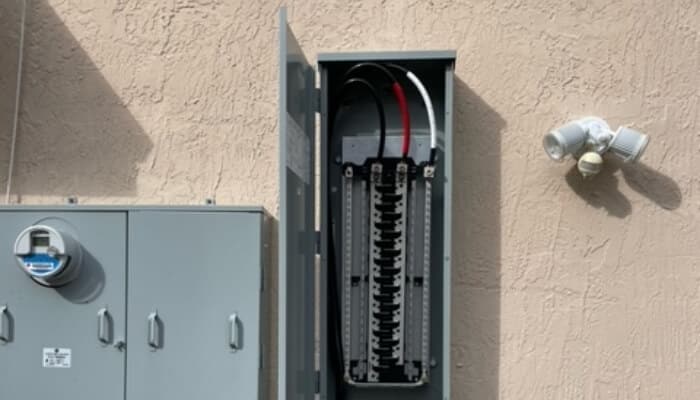
Exploring the Variations Between Fuses and Circuit Breakers: A Guide for Homeowners in Boynton Beach, FL
As a homeowner in Boynton Beach, FL (including the entire Southeast Florida coastline), ensuring the safety and efficiency of your electrical system is paramount. When it comes to protecting your home from electrical faults and overloads, understanding the differences between fuses and circuit breakers is essential. In this guide, we'll delve into the distinctions between these two protective devices, considering factors such as the age of the home and the unique conditions of Southeast Florida.
Fuses vs. Circuit Breakers: Understanding the Basics
Fuses: Fuses are traditional electrical protection devices with a thin strip of metal designed to melt when exposed to excessive current. When a fault occurs, such as a short circuit or overload, the fuse melts, interrupting the flow of electricity and preventing damage to the electrical system and appliances. Screw-in and RK5-style Fuses are still found in older homes, outbuildings, sheds, and commercial applications. However, screw-in style or RK5 style fuses are becoming increasingly rare in homes. If you have this style in your home please call Suncoast Electrical division today. Your home's fuse box must be inspected for age and safety.
Circuit Breakers: Circuit breakers, on the other hand, are more modern alternatives to fuses. They automatically tripped and disconnected the circuit when they detected an overload or short circuit. Unlike fuses, circuit breakers can be reset after they trip, eliminating the need for replacement. These are not without their problem, even considering the benefits of a circuit breaker. Manufacturers such as Federal Pacific, Sylvania-Zinsco (GTE), and Challenger GFCI Breakers have all had recalls. If you think you have one of these style breakers, it’s time to call in the professionals at Suncoast Electrical.


Factors Influencing the Choice
Age of the Home: For older homes in Boynton Beach, FL, that still rely on outdated electrical systems such as cloth wiring or knob and tube, fuses may be more common. These homes may have fuse boxes installed, which require fuses for protection. However, many homeowners upgrade to circuit breakers for improved safety and convenience.
Location and Climate: Southeast Florida's climate, characterized by high humidity and occasional severe weather, can pose unique challenges to electrical systems. Circuit breakers are often preferred in this region because they provide more reliable protection against electrical faults, including those caused by moisture or lightning strikes.
Ease of Maintenance: Circuit breakers offer the advantage of easy reset after tripping, eliminating the need for replacement components. This convenience can be particularly beneficial in areas prone to frequent electrical disturbances, such as those caused by storms or power surges.
Safety and Reliability: While fuses and circuit breakers are designed to protect against electrical hazards, circuit breakers are generally considered safer and more reliable. They provide better protection against fire hazards and are less susceptible to tampering or incorrect installation. Look at this list of 'recent' recalls... are you affected?
- Square™ D QO™ Plug-on-Neutral Load Center Recall
- PowerPact J-Frame Circuit Breakers
- Square D-Brand F and K Frame Circuit Breakers
Making the Right Choice
When deciding between fuses and circuit breakers for your home in Boynton Beach, FL, consider factors such as the age of your home, the local climate, and your maintenance preferences. While fuses may still be found in older homes, many homeowners upgrade to circuit breakers for improved safety and convenience.
If you're unsure which option is best for your home, consult a qualified Boynton Beach, FL, electrician who can assess your electrical system and recommend the most suitable protection devices. By prioritizing electrical safety and choosing the proper protection for your home, you can enjoy peace of mind knowing that your electrical system is equipped to handle any challenges.












